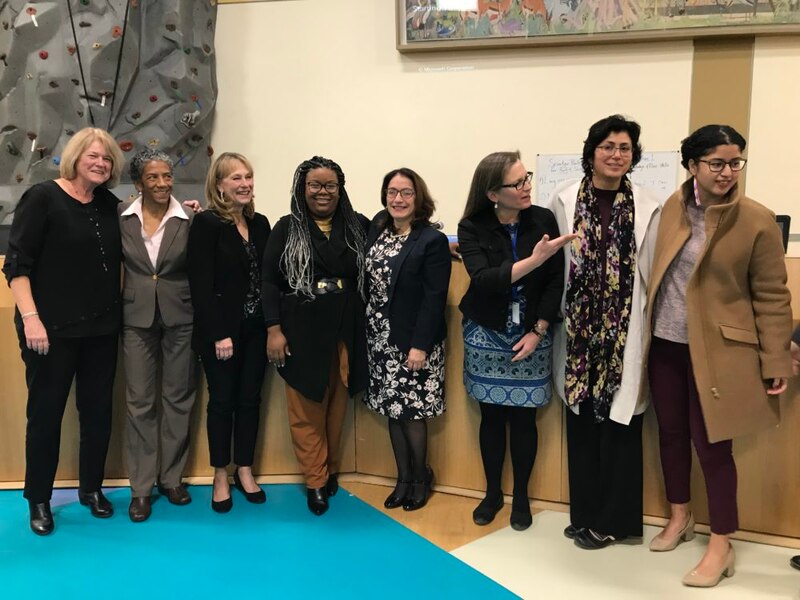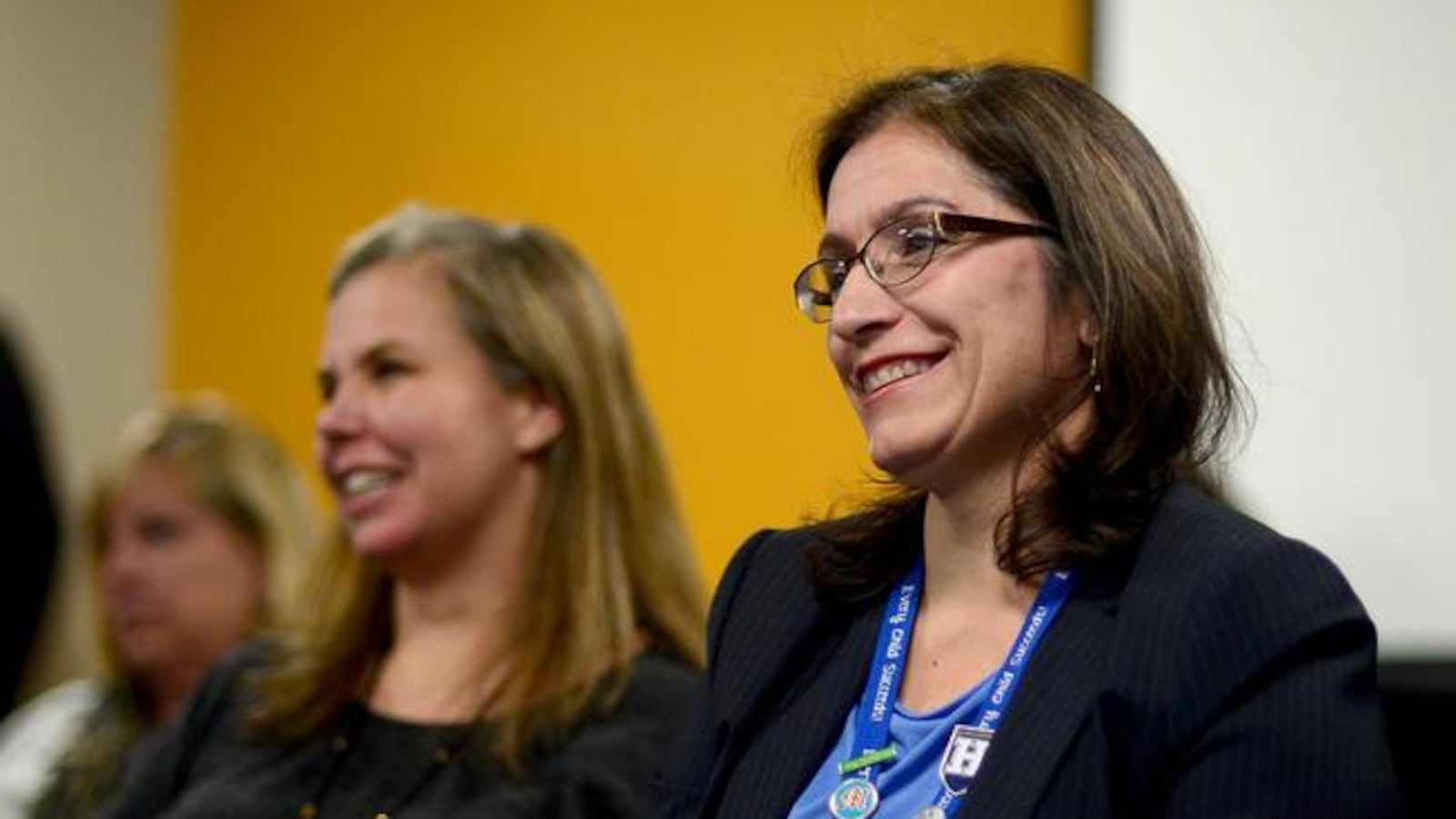Nearly 30 years after she began her career in Denver as a bilingual teacher, Susana Cordova was selected Monday as superintendent of the 92,000-student school district.
The Denver school board voted unanimously to appoint Cordova, who has served as the district’s deputy superintendent for the past two years. She will take over the top job in January.
“I’m incredibly humbled and gratified by the support from the board,” Cordova said after the vote.
While critics have said Cordova shoulders some of the blame for persistent problems in the district, including big test score gaps between students of color and white students, board members praised her for her knowledge of Denver, her experience as an educator, and her ability to, as board member Barbara O’Brien said, “talk to people on the other side of the aisle.”
Since being named a finalist for the job, “Susana was faced with a lot of controversy and she didn’t avoid the controversy, but she leaned into it,” board member Happy Haynes said.
“We all knew Susana as a deep listener,” Haynes said. “But to watch her in the community sessions, listening to each person regardless of what their concern was and whether they agreed with her or not — she listened deeply. And that’s an extraordinary attribute for a leader.”
Cordova, 52, has spent her entire career in Denver Public Schools. She has been a teacher and principal in district-run schools, and a district administrator overseeing them. A big part of her job in recent years has been helping struggling district-run schools improve.
Drew Schutz is principal at Valverde Elementary, one of the schools that got extra funding and help. Schutz said Cordova provided guidance in tangible ways, visiting Valverde several times and brainstorming strategies that could boost student learning there.
One action that stands out to him, he said, was when Cordova pitched in when he was trying to recruit parents to help with redesigning the low-performing school.
“She was out here one day — a sweltering hot day in the middle of the summer — and she was going door to door with me in the community,” Schutz said. “That was a point where I realized she was truly invested in soliciting community voice.”
Cordova is different from her predecessor, Tom Boasberg, in several ways that community members have said are important. Cordova is Latina, and she will lead a district where 55 percent of students are Hispanic. She is also a lifelong educator and a lifelong Denver resident. Cordova graduated from Denver Public Schools, and she sent her own children to schools in the district. Her son graduated and her daughter is a senior in high school.
Cordova has talked about how the education she received from the Denver Public Schools changed her life, but how some of her classmates and family members — students of color who grew up in working-class neighborhoods — faced a different outcome.
“I feel like what happened to me was more good fortune than it was a design,” Cordova said at a public forum about her candidacy last week. “My belief is we must be working intentionally to be creating equity by design and not by chance.”

After Monday’s vote, Cordova said she couldn’t help but think back to herself in elementary school — and how much it would have meant to 8-year-old her to know she’d one day lead the school district.
“I don’t know that I could have imagined this,” Cordova said. She added that she’s excited “to make sure the 8- and 9-year-olds sitting in our classrooms today have all the access and opportunities I had.”
The appointment of Cordova as superintendent was expected, as she was the sole finalist for the position. That put her in the hot seat, with some parents and teachers questioning whether the search, which cost the district more than $160,000, was a sham.
Board members said they intended to name multiple finalists but two candidates dropped out. Cordova has repeatedly said she would have preferred to have competition for the job so the community could be sure she was selected on her merits.
Five of the seven school board members were enthusiastic in their comments Monday about Cordova leading the district. Two others — Jennifer Bacon and Carrie Olson — were more measured. Both acknowledged community concerns. Bacon paused before casting her “aye” vote.
One of the main criticisms of Cordova is that, because of her role as a senior district official, she is partly to blame for the district’s failure to serve students of color and those from low-income families as well as it serves white students and those from wealthier families. White students regularly outperform students of color on state standardized tests.
Cordova has acknowledged those gaps and said closing them would a top priority. At last week’s forum, Cordova talked about how she believes training on bias and culturally responsive teaching should be mandatory for all teachers instead of allowing some to opt out.
Cordova’s husband’s job has also caused some to question if she should lead the district. Her husband, Eric Duran, is a banker who helps charter schools get financing for construction projects. Charter schools are publicly funded but independently run, and they are controversial because some people see them as siphoning money and students from district-run schools.
Duran’s firm, D.A. Davidson, has said it wouldn’t do business with Denver Public Schools or any of Denver’s 60 charter schools if Cordova were appointed superintendent.

